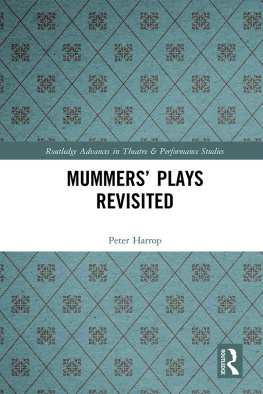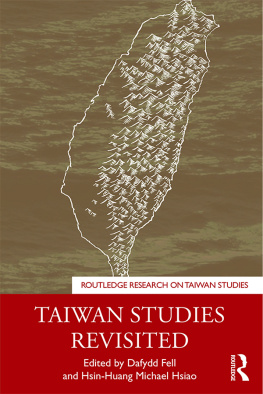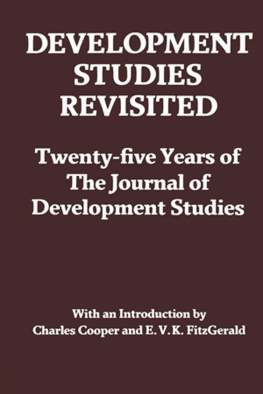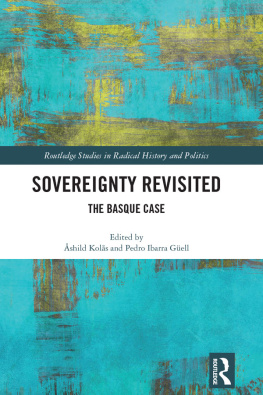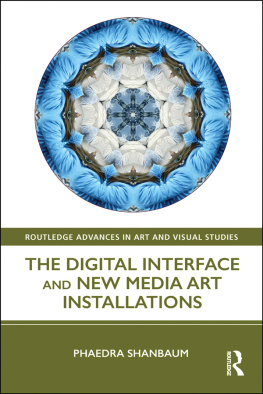Cultural Studies and Environment, Revisited
The environment is perhaps most misunderstood as a static place, somewhere out there, separated from the practices of our everyday lives. Given this assumption, environmental movements and concerns have remained mostly marginalized or denigrated in Anglo-Australian-American cultural studies publications, conferences, and presentations. Recent global developments have made changing this oversight and, at times, direct resistance to engaging environmental concerns a new priority. This edited collection illustrates an appreciation of the dynamic, palpable, and significant ways the environment permeates culture (and vice versa), as well as a collective commitment to the ways that cultural studies has more to offerand to learn fromtaking environmental matters to heart. Like foundational categories of identity, economics, and historical context, this collection reminds us why the environment is and should be considered relevant to any work done in the name of cultural studies. Including research from four continents and across media, the authors offer insights on timely topics such as food, tourism, human/animal relations, forests, queer theory, indigenous rights, and water.
This book was published as a special issue of Cultural Studies.
Phaedra C. Pezzullo is an Associate Professor in the Department of Communication and Culture, and adjunct faculty of Cultural Studies and American Studies at Indiana University, Bloomington, USA. She authored Toxic Tourism: Rhetorics of Pollution, Travel, and Environmental Justice (University of Alabama, 2007) and co-edited Environmental Justice and Environmentalism: The Social Justice Challenge to the Environmental Movement (MIT Press, 2007).
First published 2011
by Routledge
2 Park Square, Milton Park, Abingdon, Oxon, OX14-4RN
Simultaneously published in the USA and Canada
by Routledge
270 Madison Avenue, New York, NY 10016
Routledge is an imprint of the Taylor & Francis Group, an informa business
2011 Taylor & Francis
This book is a reproduction of Cultural Studies, 22.3-4. The Publisher requests that those citing this book use the bibliographical details of the journal issue on which the book is based.
All rights reserved. No part of this book may be reprinted or reproduced or utilised in any form or by any electronic, mechanical, or other means, now known or hereafter invented, including photocopying and recording, or in any information storage or retrieval system, without permission in writing from the publishers.
British Library Cataloguing in Publication Data
A catalogue record for this book is available from the British Library
ISBN13: 978-0-415-61313-2
Disclaimer
The publisher would like to make readers aware that the chapters in this book are referred to as articles as they had been in the special issue. The publisher accepts responsibility for any inconsistencies that may have arisen in the course of preparing this volume for print.
Phaedra C. Pezzullo
We need different ideas because we need different relationships.
(Williams 1980, p. 85)
But you know, grandson, this world is fragile.
(Silko 1977, p. 35)
And when nature is heard as nonsense, (its) music will sound through, unhampered. Again, nature will be heard.
(Minh-ha 1996, p. 102)
Nature, or to what I will refer more broadly as the environment, is perhaps most misunderstood as a static place, somewhere out there, somehow beyond or separated from the practices of everyday life. All too often, when the environment is reduced to a place, we tend to assume it signifies the country, and forget it also refers to the city. We imply that it is static, and not dynamic. We take it for granted, and turn our attention elsewhere. Under industrial, colonial, developmental, and other arrogant influences unwilling to appreciate its fragility or to listen to its complex composition, the environment often falls prey to what Renaldo Rosaldo (1989) calls an imperialist nostalgia, in which people destroy their environment and then worship nature (p. 108).
The environment, of course, is neither pure nor obsolete. Rather, it both exceeds the cultural and invokes a performative, heterogeneous discourse that shapes our entire lives. More than a location, the environment is what it does materially and symbolically. Yes, it is where we stand and where we lie down; however, it also heats and cools us. It provides us light at night. It fuels our cars, buses, trains, and airplanes. It permeates every pore of our flesh, DNA strand in our genetic make up, and identity written on and through our bodies. It involves processes with and without us that we still do not and may never comprehend.
Yet, for the most part, the environment remains marginalized within cultural studies publications, conferences, and conversations. Put more bluntly, it is unclear whether or not cultural studies actually is ready or equipped to engage the environment. As Jody Berland (unpublished address 2005) suggests, there seem to be at least three fundamental limitations of cultural studies as some still currently practice it that might suggest the roots of this reluctance: (1) an emphasis on the logic of representation that reinforces a dualism between nature and culture; (2) a resistance to critiquing consumption in any context; and (3) a resilient legacy from the Sokal affair and science wars that continues to make some of us fear engaging and border-crossing into questions of science.
Given this unfortunate lack of a robust response to the last special issue on the environment in this journal, it seems timely once again to revisit and to re-imagine these research trajectories, in order to avoid stagnating in our evasion of environmental matters and risking the political and theoretical integrity of the practice of cultural studies itself. As such, this volume of Cultural Studies wishes to animate, rather then delimit our appreciation of the environment as vital to the past, present, and future of cultural studies.
Despite calls to the contrary in the US, this collection of international voices testifies that a eulogy for environmental movements and the environment itself is vastly premature and based on a narrow definition of each. Evidence of the vitality of the environment and those who speak for it may be found in the traces of local and transnational practices across the globe, suggesting both the possibilities and the limitations of language and human agency. As such, each contribution illustrates an appreciation of the dynamic, palpable, and significant ways the environment permeates culture (and vice versa), as well as a collective commitment to the ways that cultural studies has more to offer and to learn from taking environmental matters to heart. Motivated by specific contexts and practices, each articulates the environment as only one factor driving her analysis. In other words, although the environment is vital to their practice of cultural studies, each argues how the environment is connected with broader cultural, political, and ethical concerns, such as popular practices, marginalized identities, and the project of cultural studies itself. Overall, they offer a diverse and, hopefully, inspiring range of more ethical and sustainable possibilities within and beyond cultural studies.




